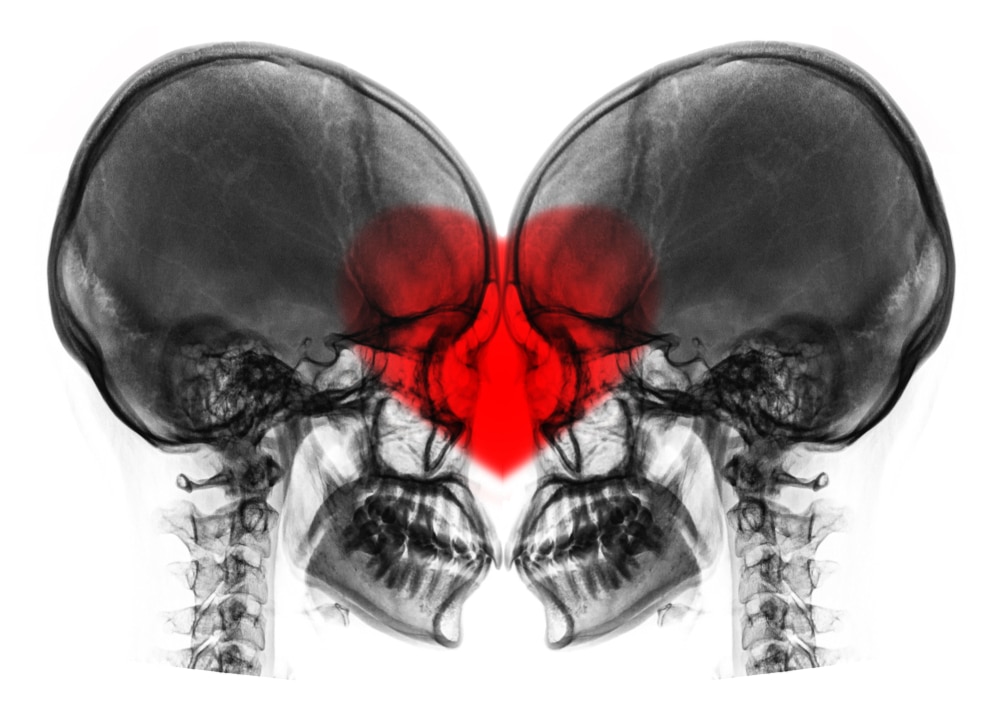How Can One Improve Their Self-Esteem After Being Cheated On?

Key Takeaway:
- Recognize that the actions of a cheating partner are not a reflection of your worth or value as a person. Do not internalize feelings of rejection or blame.
- Focus on self-care and engage in empowering activities such as turning to spirituality, finding a new hobby, exercising, volunteering, seeking therapy, and maintaining connections with friends and family.
- Reframe self-blaming thoughts, establish boundaries, and regain control over your emotions and actions. Seek support from loved ones, engage in activities that bring joy, and work on overcoming overthinking and insecurity through mindfulness and positive self-talk.
- Reclaim your self-esteem by validating your feelings, rethinking your perception of aging, silencing your inner critic, surrounding yourself with supportive people, and focusing on self-improvement and personal growth.
- Decide whether to stay in the relationship or end it based on honest communication with your partner, seeking understanding, forgiveness, letting go of resentment, and rebuilding trust. Additionally, find happiness outside of the relationship by engaging in activities you love, developing independence, accepting that you cannot control someone else’s actions, and moving forward in future relationships.
The Impact of Infidelity on Self-Esteem
When it comes to infidelity and its impact on self-esteem, there are several factors to consider on how can one improve their self-esteem after being cheated on. In this section, we will explore the consequences of experiencing betrayal and how it can affect one’s sense of self-worth. From internalizing feelings of rejection and blame to avoiding behaviors that devalue oneself or enable the cheater, we will delve into the emotional aftermath of infidelity. Additionally, we will highlight the importance of recognizing that one is not responsible for their partner’s actions.
Internalizing Feelings of Rejection and Blame
After being cheated on, it is common to internalize feelings of rejection and blame. This leads to self-esteem decreasing as one may feel unworthy, unlovable, and inadequate. People may start questioning what they did wrong and why they weren’t enough.
It’s important to realize that the partner’s decision is a reflection of their character and not of one’s worth. Internalizing these negative feelings is not productive or healthy. To recover, individuals must focus on self-compassion and self-forgiveness.
Reframing negative thoughts and engaging in positive affirmations can help shift the focus from blame to self-empowerment. It is vital to remember that everyone deserves respect and fidelity in a relationship. By understanding that they are not responsible for their partner’s actions, individuals can reclaim their sense of self-worth and begin rebuilding their self-esteem.
Avoiding Behaviors that Devalue Oneself or Enable the Cheater
Internalizing blame and rejection can damage your self-esteem if you have experienced unfaithfulness. It’s important to recognize that it’s not your fault. You must stop doing things that make you feel bad or make it possible for the cheater to cheat. It is essential to renew your self-esteem and heal.
It’s hard to manage the emotions of being deceived on. But it’s important to not blame yourself for what the cheater did. It’s helpful to realise that cheating is a decision the cheater made to help you not blame yourself and maintain a healthier self-image.
After being cheated on, it’s necessary to stay away from behaviours that make you feel worthless or enable the cheater. Set boundaries, don’t tolerate disrespectful behaviour and take care of yourself.
Enabling is when you do things that support the cheater’s behaviour. It’s important to not enable them by confronting cheating and making sure they know it’s not okay. Holding yourself and your partner accountable will help you keep your self-respect and aid your development.
No matter what, it’s essential to remember that it’s still possible to love and be happy despite experiencing infidelity. Look for therapy, be with supportive friends and family, and find activities that make you happy. That way, you can rebuild your self-esteem after being deceived on.
Recognizing that One is Not Responsible for the Partner’s Actions
Realizing that you are not responsible for your partner’s decisions is a major step to heal from infidelity. Feelings of guilt and worthlessness can hurt your self-esteem, if you internalize them. By understanding that your partner’s choices do not define you, you can start healing your confidence.
Taking control of your life is key. Don’t do anything that reduces your worth or helps the cheater. Set boundaries and express your needs. This doesn’t mean you failed; it’s a way to protect yourself.
Talking to a therapist can help you. They can help you manage your feelings, look at things differently and learn how to cope. They can help you understand that you deserve love – a key step in rebuilding your self-esteem.
Surround yourself with kind people who support you. Do things that make you happy and bring joy. Pursue hobbies, volunteer, do whatever reminds you of your worth outside the relationship.
Gain strength through spirituality, hobbies and therapy, and you’ll be on your way to recovery after infidelity.
Empowering Ways to Recover After Being Cheated On
Recovering from being cheated on can be a challenging journey, but there are empowering ways to regain self-esteem. From exploring spirituality to finding new hobbies and taking care of physical health, this section offers various strategies. Additionally, volunteering, seeking therapy, and professional help can contribute to healing and personal growth. By embracing these empowering methods, individuals can rebuild their confidence and move forward after betrayal.
Turning to Spirituality
Turning to spirituality in the face of infidelity can be a powerful way for individuals to find solace. It can provide guidance and inner strength during the recovery process. It also offers a source of comfort and helps individuals connect with something greater than themselves. This can be through religious practices, meditation, or exploring their personal beliefs.
Spirituality serves as a pathway to explore values, beliefs, and principles. This can strengthen an individual’s sense of self-worth after experiencing infidelity. Reflecting on experiences from a deeper perspective can help gain insight into emotions and reactions. Cultivating a spiritual practice can enable an individual to process hurt, anger, or betrayal in a healthy manner. They can also develop resilience and forgiveness as they work towards healing and rebuilding trust.
Focusing on the present moment and practicing mindfulness or prayerful awareness can cultivate gratitude. This fosters a sense of inner peace and contentment that contributes positively to one’s self-esteem. Tuning into one’s spirituality is an empowering way to recover from the discovery of infidelity. It can help individuals reflect on their values, find gratitude, and ultimately rebuild self-esteem.
A new hobby can be found to replace the old love – one that won’t cheat!
Finding a New Hobby
Finding a new hobby can be a great way to recover after being cheated on. It gives a sense of purpose, fulfillment, and distraction from pain. It helps to redirect energy in a positive way.
Exploring hobbies can open doors to meet like-minded individuals and build a new social circle. This can help rebuild confidence and make new connections. It can also help discover talents and boost self-worth.
Participating in hobbies is a healthy outlet for stress relief and emotion. Painting, playing an instrument, or yoga can bring joy and help process emotions in a positive way. It helps focus on personal growth and develop skills for well-being.
Recovering from infidelity, finding a new hobby helps distract and build resilience. By embracing new experiences and passions, individuals can foster personal development and build a stronger sense of self.
Exercising and Taking Care of Physical Health
Looking after physical health and exercising regularly is a key part of recovering from being cheated on. Exercise has plenty of advantages for both the body and mind, increasing overall wellness and building self-esteem.
- Physical activity releases endorphins, known as natural mood enhancers. Regular exercise can reduce feelings of sadness, anxiety, and depression due to infidelity.
- Doing physical activities such as jogging, yoga, or weightlifting can be a healthy way to let out anger and frustration.
- Exercise also gives a sense of achievement and power, as you see your own progress and observe improvement in fitness.
- Taking care of your physical health through exercise not only raises self-esteem but also helps a healthier body image. You’ll feel more confident in your own skin.
- Apart from its emotional advantages, regular exercise helps prevent health issues such as heart disease, obesity, and diabetes.
Moreover, exercise enhances sleep quality and boosts energy levels. This is especially beneficial during recovery as emotional distress can cause difficulty sleeping or low energy. Exercise in your routine can bring improved sleep patterns and clearer thinking.
It is important to remember that while exercise can be beneficial for self-esteem after being cheated on, it should be done alongside other healing strategies. Seeking therapy or expert help is essential to address underlying emotions and create coping mechanisms. Doing other activities like finding new hobbies or volunteering is also great for total well-being and personal growth during recovery. Rebuilding self-esteem after being cheated on means being kind and compassionate to yourself.
Volunteering and Giving Back
Volunteering and giving back is about taking part in good deeds. It could be providing help, support, or resources to people or groups in need.
It has a positive effect on others and on the individual’s self-esteem. It gives a sense of purpose and satisfaction, by making a difference in other people’s lives.
Volunteers can build new skills, gain experience, and broaden their views. It provides personal growth and contributes to the greater good. It also creates meaningful connections with people of similar interests. This can boost self-esteem and provide a support system.
For those that have gone through pain, volunteering and giving back can be a form of therapy. It helps to change focus from negative emotions to something empowering.
In conclusion, volunteering and giving back is a win-win situation. It benefits the recipients as well as the self-esteem of those involved.
Seeking Therapy and Professional Help
Seeking therapy and professional help can be a great way to recover from infidelity. It offers individuals a safe space to express their emotions and work through any trauma from the betrayal. Professionals trained in relationship counseling can give guidance and support to manage the complicated emotions that often arise.
Therapy can be used to look at any issues that may have led to the infidelity such as communication issues or unresolved conflicts. This understanding of oneself and their partner can lead to improved self-esteem and trust in future relationships. Professionals can also provide tools and techniques for dealing with the aftermath of being cheated on.
When seeking therapy, it is important to find a therapist who specializes in relationship issues or has experience with people who have been cheated on. Therapy can come in multiple forms, such as individual counseling or couples therapy.
Seeking therapy and professional help shows commitment to personal growth and seeking advice from experts. It provides an objective point of view outside of one’s immediate social circle.
Overall, seeking therapy and professional help after cheating can be invaluable. It provides a space for healing, personal growth, and rebuilding self-esteem and trust. Having a trained therapist or counselor can make recovering from infidelity easier and lead to healthier relationships in the future.
Maintaining a Healthy Self-Image during the Recovery Process
During the recovery process after being cheated on, one essential aspect is maintaining a healthy self-image. In this section, we will explore various ways to rebuild self-esteem and regain confidence. From staying connected with friends and family to exploring new opportunities through a dating profile, engaging in personal growth, reconnecting with faith and identity, to using art, music, and writing for self-expression, we will discover effective strategies to enhance our sense of self-worth and resilience.
Staying Connected with Friends and Family
Connecting with loved ones is crucial for keeping a good self-image and bouncing back from infidelity’s repercussions. It builds a support network, aiding in restoring self-esteem and confidence.
Creating a Dating Profile and Exploring New Opportunities
Crafting a dating profile can help individuals rebuild their self-esteem after being cheated on. It allows them to present themselves authentically and attract people who value them. Exploring new opportunities through dating also encourages individuals to step out of their comfort zone and engage in activities that bring joy and excitement.
Furthermore, creating a dating profile can be a reminder of their own worth, despite past experiences. Through exploring new possibilities, individuals can rediscover their self-worth and confidence.
Staying true to themselves is crucial during this process of healing. By acknowledging the power of self-reflection and taking steps towards building trust, they create opportunities for happiness. Ultimately, learning is the ultimate revenge – take control of your self-esteem through adult education and personal growth.
Engaging in Adult Education and Personal Growth
Rebuilding self-esteem after being cheated on? Adult education and personal growth are key! Invest time and effort into learning new things. Feel empowered and intellectually stimulated. Pursue personal growth activities like self-reflection and self-improvement too.
Enroll in courses or workshops that fit with your interests and career goals. Acquire new knowledge and skills. Show commitment to personal development. Focus on your own goals, not the past.
Emotional healing is important. Seek guidance and support through therapy sessions or support groups. Understand your emotions. Develop coping strategies. Reclaim your confidence.
Take proactive steps towards self-improvement. Set goals. Identify areas for improvement. Take actionable steps. Develop resilience. Find happiness and fulfillment.
Engage in adult education today. Explore new knowledge or skills. Commit to your personal development. Heal from the pain of betrayal. Discover a stronger you. Start your journey of growth.
Reconnecting with Faith and Core Identity
Faith and core identity can be essential in recovering from infidelity. Reconnecting with faith can bring solace and guidance. This spiritual connection provides a sense of purpose, comfort, and hope. Examining one’s core identity allows individuals to rediscover their values, beliefs, and strengths. It helps rebuild self-esteem and find inner strength to move forward.
Spiritual practices and self-reflection are involved in reconnecting with faith and core identity. This may include attending religious services or connecting with a higher power through prayer or meditation. Additionally, evaluating personal values, beliefs, and principles that define one’s identity is important. By doing this, people can gain a clearer understanding of who they are and what is truly important to them.
Faith and core identity also offer moral guidance. This can be helpful when struggling with forgiveness or deciding whether to stay in the relationship. Reconnecting with faith provides ethical frameworks for complex decisions.
Sarah’s story is an example of the power of reconnecting with faith and core identity. Upon discovering her partner had been unfaithful, Sarah was devastated. Turning to her faith for solace and guidance, she found comfort. Connecting with her core beliefs also helped restore her self-worth and reminded her of her values. Eventually, Sarah was able to forgive both herself and her partner while still taking care of herself. Through reconnecting with her faith and core identity, Sarah was able to heal from the betrayal and rebuild her self-esteem.
Using Art, Music, and Writing as Forms of Self-Expression
Art, music, and writing can be awesome forms of self-expression for those recovering from infidelity. These creative activities offer a way to explore and express emotions that may be tricky to say out loud. Doing artistic things can provide a healing and liberating experience, aiding individuals to work through feelings of betrayal, rage, sadness, or confusion. Artistic expression allows the release of pent-up emotions, bringing a sense of calmness and understanding.
By diving into art, music, and writing, individuals can enter their inner worlds and reclaim their identity outside of their relationship. Through these creative outlets, they can find ease and purpose in hard times. Art helps individuals connect with their subconscious mind and tap into hidden emotions or wishes that may have been overshadowed by the pain of unfaithfulness.
Music also has a big role to play in the healing process after infidelity. Whether it’s listening to tranquil tunes or producing music themselves, individuals can find peace in songs that resonate with their situations. Music has the power to stir up strong feelings and bring comfort in tough times. It is a kind of self-expression that can lead to healing and transformation.
Likewise, writing offers a therapeutic path for self-reflection and exploration. Journaling provides an opportunity for individuals to totally process their thoughts and feelings related to being cheated on. By writing down their thoughts, one can gain insights into their own challenges and start making sense of their anguish.
In addition to being good outlets for self-expression, art, music, and writing can also be catalysts for personal growth and transformation. Engaging with these creative forms gives individuals the chance to find out more about themselves while encouraging resilience on the way to healing.
Through art therapy or adding art-making exercises into everyday life, individuals can tap into their creativity as a way to heal and restore self-esteem. By listening to music that speaks to their feelings, individuals can find comfort and solace during difficult times. And through writing, individuals can gain clarity and investigate their own story, ultimately giving themselves the power to move on from the experience of infidelity.
Rebuilding Self-Esteem and Self-Confidence
Rebuilding self-esteem and self-confidence after being cheated on involves reframing self-blaming thoughts, establishing boundaries, recognizing one’s worthiness of love, seeking support from loved ones, and engaging in joyful activities.
Reframing Self-Blaming Thoughts
Ditch self-blame and shift your perspective to realize that you are not responsible for your partner’s actions. Experiencing infidelity can damage your self-esteem and make you feel rejected and blamed. Reframing your thoughts can help alleviate the burden of self-blame and recognize that the cheater, not you, is at fault. This process helps you develop a healthier mindset and rebuild your self-esteem and confidence.
It is key to understand that you are not accountable for what your partner did:
When cheated on, it is natural to think you are not worthy, or that you had a role in the infidelity. However, remember that infidelity is a choice the cheater made with her affair partner and does not reflect on your value. Reframing your thoughts can help you gain control of your emotions and reclaim your worth.
Also, avoid behaviors that devalue yourself or enable the cheater.
Setting boundaries and prioritizing self-worth are essential for recovering from infidelity. Doing things that emphasize your value and create personal boundaries helps move away from self-blame and embrace your deservedness of love.
Pro Tip: Self-blame is not beneficial. Instead, use the experience as an opportunity to grow and empower yourself. Take charge of your worth and leave infidelity behind!
Establishing Boundaries and Regaining Control
After infidelity, healthy boundaries and control are essential to restoring self-esteem. Setting limits on what’s acceptable, and communicating this to your partner, is vital to protect yourself from further harm. Also, consequences should be enforced if these boundaries are crossed.
To regain control, take charge of your own life! Decisions should prioritize self-care and well-being. This empowers you to reclaim your power and identity, separate from the betrayal. Maintaining boundaries, enforcing consequences, and reclaiming control all help to rebuild trust in yourself. This is an important step in rebuilding self-esteem after being cheated on.
Recognizing One’s Worthiness of Love
It is important to internalize that infidelity is a reflection of the cheater’s choices and behavior, not of one’s own worth. Thus, understanding one’s worthiness of love involves realizing this. Though it can be hard, as feelings of rejection and blame may arise after being cheated on, one can rebuild self-esteem by avoiding behaviors that devalue oneself or enable the cheater.
To empower themselves, individuals can turn to spirituality. Finding solace in beliefs and seeking guidance from higher powers can nurture self-worth and bring strength. Investing time and energy into a new hobby – such as painting, playing an instrument, or doing yoga – can provide a sense of fulfillment and boost confidence.
Exercising and taking care of physical health can help counteract negative emotions. It releases endorphins which improve mood and overall well-being. Volunteering and giving back to others foster a sense of purpose and empathy, contributing to a healthy self-image.
Therapy or professional help is important for recovering from infidelity. It provides support, guidance, and tools to rebuild self-esteem. Friends and family who offer love, support, and encouragement should also be sought. Exploring new opportunities for companionship can also aid in recognizing one’s worthiness of love.
Engaging in adult education or personal growth activities can contribute to a stronger self-image. Pursuing knowledge and personal improvement reinforces the belief that one is deserving of love and respect. Reconnecting with faith and core identity can be a powerful way to recognize one’s worthiness of love. Creative outlets such as art, music, or writing can serve as forms of self-expression that promote healing and self-discovery.
Seeking Support from Family and Friends
Family and friends can be a great help when recovering from being cheated on. They can provide understanding, empathy, and a listening ear to help with the hard emotions and struggles. Having a system to rely on lets people feel validated in how they were hurt and helps them understand things better with support from those who care.
Family and friends can offer advice, direction, and motivation during this tough time. They can help rebuild self-esteem by reminding individuals of their worth, and reinforcing positive qualities. They also help remind that the cheating wasn’t the individual’s fault, and that they deserve love, respect, and joy.
In addition to emotional help, family and friends lend practical aid too. They may help with childcare or household tasks to ease the stress of healing. They also give a safe space to express feelings without judgement.
Overall, getting support from family and friends is key to recovering from infidelity. They give comfort, assurance, and acceptance during the healing. With their help, individuals can build their self-esteem and have faith in themselves and future relationships.
Engaging in Activities that Bring Joy
Engage in joy-bringing activities to rebuild self-esteem and find happiness. Take part in fulfilling activities to gain control over life and focus on well-being. Explore new hobbies, volunteer, exercise, or seek therapy and expert help.
Joyful activities redirect energy to positive experiences and personal growth. Find a new hobby to distract from negative thoughts and cultivate new interests and skills. Painting, gardening, playing a musical instrument can all foster accomplishment and boost self-esteem.
Physical health is important for increasing self-worth. Exercise releases ‘feel-good’ hormones to improve mood, boost confidence, and reduce stress.
Volunteering and giving back to the community are rewarding. Helping others provides a sense of purpose and connects with people who share similar values. Doing acts of kindness increases self-worth.
Therapy and professional help heal emotional aftermath of betrayal. Therapists provide guidance, support, and coping strategies. Process feelings of hurt, anger, and insecurity while building resilience and cultivating self-compassion.
To conclude, joy-bringing activities are key for recovering self-worth after infidelity. Find hobbies, take care of physical health, volunteer, and seek support from therapy to rebuild self-esteem and find happiness. Stop overthinking and start embracing your worth through mindfulness and trust-building exercises.
Overcoming Overthinking and Insecurity
Overcoming overthinking and insecurity is essential for improving self-esteem after being cheated on. In this section, we will explore various strategies to tackle these challenges. From understanding the reasons behind overthinking, working on trust issues, and practicing mindfulness, to letting go of “what-if” thinking and adopting positive self-talk, journaling, creating new routines, and seeking therapy – we’ll discuss effective ways to regain confidence and rebuild an empowered sense of self.
Understanding the Reasons for Overthinking
Overthinking is a natural response to being cheated on. People may obsessively analyze the situation, searching for answers that will validate their self-image. This can be fueled by feelings of insecurity and past traumas. Additionally, societal pressures and expectations can contribute to overthinking.
Excessive rumination about the reasons for cheating may not lead to resolution or healing. It is important to shift the focus to creating a positive future. Seeking therapy or professional help may be beneficial. Therapists can provide guidance and develop coping mechanisms such as mindfulness techniques or CBT.
By addressing the root causes and developing strategies for managing overthinking, individuals can begin to rebuild their self-esteem and regain a sense of self-worth. This requires patience and self-compassion, but it is possible to overcome the cycle of overthinking and cultivate a healthier mindset.
Working on Trust Issues and Practicing Mindfulness
Addressing challenges from infidelity requires effort, patience, and self-reflection. Open, honest communication with your partner is essential for building trust. Practicing mindfulness – such as meditation and deep breathing – can help you manage anxiety and create space for healing. Establishing boundaries is key for rebuilding trust; be sure to communicate your needs and expectations with your partner.
Consistent actions – like honoring commitments and following through on promises – are important for restoring trust over time. Forgiveness is necessary; letting go of resentment and understanding yourself and your partner’s actions can free you from anger. Professional help can provide guidance and tools for navigating the complexities of rebuilding trust. And don’t forget: self-compassion and patience are key. A true story of a couple who sought therapy to help rebuild trust is inspiring; with dedication, trust can be restored.
Letting Go of “What-If” Thinking and Positive Self-Talk
Ditch the “what-ifs” and start talking to yourself with kindness. Acknowledge that your partner’s actions were not your fault and don’t take the blame. Instead, reframe negative beliefs and thoughts with positive words. Give yourself permission to be happy and love yourself, no matter what.
Take part in activities that bring you joy and fulfilment. Exercise to help care for your physical health and boost your well-being. When needed, tap into therapy or professional help to guide you through the healing process.
Let go of the pain from infidelity and start your journey to self-empowerment today! Write out your pain and create a new routine; healing begins with putting pen to paper. Take small steps every day towards positive self-talk and a brighter future. You deserve love and happiness, don’t let the past define your tomorrow.
Journaling and Creating New Routines
Journaling and creating new routines can be helpful in restoring self-esteem after infidelity. Writing down thoughts and emotions can provide a safe place to express feelings. It may also help gain insight into one’s needs and desires. Establishing new habits can bring structure and stability. This can give a sense of purpose and control, aiding in rebuilding self-esteem.
In addition, seeking therapy or professional help may be beneficial. A therapist can offer guidance and coping strategies. Through this, individuals can gain understanding about their low self-esteem and develop strategies for restoring confidence.
Everyone’s journey is unique. Different approaches should be explored until finding what works best. If struggling with low self-esteem, start by journaling. Reflect on emotions and process thoughts. Reach out for support from loved ones or professionals who can help. Don’t miss out on a fulfilling life. Reclaim self-esteem and create a life of happiness, fulfillment, and love.
Seeking Therapy and Professional Help
Therapy can be a beneficial way to recover after being cheated on. It provides a safe space to express emotions and build coping strategies. A therapist can help you handle feelings of rejection and blame. They can also help you challenge negative self-perceptions and rebuild your self-esteem.
Therapy is also a chance to explore how infidelity affects your identity. A therapist can help you tackle any issues, like communication problems or unresolved trauma, that led to the cheating. This can help you better understand yourself and your needs.
Also, seek professional help from experts in fields like relationship counseling or coaching. They can offer advice on trust-building, rebuilding intimacy, and addressing ongoing relationship challenges.
By seeking therapy and professional help, you can get support from trained professionals and start to heal and grow. You can put the middle finger up to betrayal and reclaim self-esteem.
Reclaiming Self-Esteem in the Face of Betrayal
In the quest to regain one’s self-esteem after experiencing betrayal, the process of reclaiming self-worth becomes essential. This section explores various strategies and techniques aimed at rebuilding one’s confidence and sense of self. From validating emotions to reevaluating the perception of beauty, silencing the inner critic, creating a support network, and embracing personal growth, these sub-sections delve into empowering ways to overcome the aftermath of betrayal and emerge stronger than ever before.
Validating Feelings and Not Allowing Others to Invalidate Them
Validate your feelings and don’t let anyone tell you they’re wrong. This is an important step in building up your self-esteem and confidence after experiencing infidelity. Acknowledge and accept your emotions, no matter what others think. By validating yourself, you give yourself a sense of validation from within.
It’s common to blame yourself for your partner’s cheating. But it’s not your fault. Don’t internalize the rejection and blame – this only makes you feel worse. Remind yourself that you’re not responsible for their decision.
Surround yourself with supportive people who understand the hurt. Avoid anyone who belittles your feelings or invalidates your experience. Create a safe, encouraging atmosphere to help you heal and grow.
One individual found comfort in a close friend who understood their pain. This friend offered a space for them to express freely without worrying about judgment. Through this validation, the individual started to rebuild their self-esteem and trust again. They realized their feelings mattered and were worth hearing – this helped them move forward and find happiness.
Age might be a number, but hotness is everlasting – shine bright and show the world betrayal can’t take away your sparkle.
Rethinking the Perception of Aging and Recognizing One’s Beauty
Healing from infidelity involves re-evaluating aging and discovering inner beauty. Self-esteem and worth can dip after being cheated on. Therefore, it’s essential to confront age-related stereotypes and rediscover what beauty means. Break free from societal standards of aging to embrace individuality. Self-acceptance and self-love are also vital for rebuilding self-esteem after betrayal.
Additionally, true beauty is within and doesn’t depend on external validation or a cheating partner’s actions. To regain confidence, challenge norms, recognize unique beauty, and find empowerment in the healing journey.
Putting a Gag on the Inner Critic and Avoiding Comparison
Put a lid on the inner critic and nix comparison. That’s how to cut loose from the cycle of self-doubt and reclaim self-worth. Everyone’s journey is unique, so comparing yourself to others only stalls personal growth. So, embrace your strengths and accomplishments! That’s the key to creating a healthy self-image after betrayal.
Reframe negative self-talk; don’t let the inner critic dictate how you view yourself. Instead, replace negative thoughts with positive affirmations. Also, when it comes to success, don’t measure it based on external factors or others’ accomplishments. Instead, recognize and celebrate individual progress and milestones – that’s valuable!
Surrounding Oneself with Supportive Friends and Family
Surrounding yourself with supportive friends and family is a must for rebuilding self-esteem and recovering from infidelity. Research shows that these close relationships make an individual feel valued and supported. It’s a time of challenge, so having a strong support system gives emotional validation and reassurance.
Sharing thoughts, feelings, and experiences with trusted people brings a sense of belonging and connection. Friends and family offer an empathetic ear, advice, and encouragement. They create a safe space to express emotions without judgment or criticism. Plus, they can provide different perspectives to help gain clarity or develop new coping strategies.
Not all friends or family members are able to provide the necessary support. In such cases, reach out to support groups or professional counselors who have experience in dealing with these issues. They can provide guidance and support.
Overall, surrounding yourself with supportive friends and family is key in recovering from infidelity’s impact on self-esteem. They bring emotional validation, reassurance, and a sense of belonging. Reaching out whenever needed helps boost self-confidence and promotes overall well-being during the recovery process.
Focusing on Self-Improvement and Learning Something New
Self-improvement and learning new things can be a great way to rebuild self-esteem after infidelity. Focusing on personal growth and expanding skills can help regain confidence and worth.
Exploring Spirituality: Prayer, meditation, or joining a religious group can provide solace and guidance. Inner peace and purpose can be restored.
Discovering a New Hobby: Finding an activity that brings joy can be a great distraction from negative thoughts. It can also promote a sense of accomplishment and boost self-esteem.
Exercising and Taking Care of Physical Health: Regular exercise not only improves physical health, but also releases endorphins which can reduce stress and enhance mood. Self-care is important and shows respect.
Volunteering and Giving Back: Helping others can bring a sense of fulfillment and purpose. It fosters positive emotions, strengthens social connections, and boosts self-esteem.
Seeking Therapy and Professional Help: A therapist or counselor who specializes in infidelity recovery can provide valuable support. Sessions can offer insight, coping strategies, and tools to rebuild self-esteem.
It is important to find what works best for oneself. Healing may take time and effort. Allow oneself to feel feelings without invalidation. Reevaluate societal perceptions of aging and recognize beauty beyond external standards. Avoid comparison.
Surround oneself with supportive friends and family. Focusing on self-improvement and learning something new can bring purpose and accomplishment. This can boost confidence and reignite passions.
In conclusion, embracing new experiences is key in rebuilding self-esteem after infidelity. Seeking support, engaging in activities that bring joy, and enhancing personal growth are all important steps towards regaining worthiness and finding happiness. Trust may be broken, but it starts with trusting yourself first.
Moving Forward and Building Trust Again
When it comes to moving forward and rebuilding trust after being cheated on, there are essential steps to consider. From prioritizing self-care and mental well-being to navigating the decision of staying in the relationship or ending it, each sub-section in this section offers valuable insights. Additionally, we explore strategies such as effective communication, seeking understanding, and the importance of forgiveness in letting go of resentment.
Focusing on Self-Care and Mental Well-Being
Self-care and mental well-being are key for recovering from infidelity. These involve activities that promote self-care, healing emotional wounds, and prioritizing mental health.
- Self-care activities like mindfulness and meditation can help reduce stress and improve overall well-being.
- Therapy or professional help can provide a safe space to talk about feelings and develop coping strategies.
- Taking time for yourself and doing activities that bring joy can boost confidence.
- Setting healthy boundaries with one’s partner and addressing trust issues can lead to emotional well-being.
- Focusing on personal growth through education or hobbies can give purpose and empowerment.
Caring for oneself and mental health are key for healing from infidelity. By engaging in self-care, seeking help, setting boundaries, finding joy, and fostering growth, individuals can rebuild their self-esteem. Investing time in taking care of oneself emotionally and mentally is important for recovering from infidelity. Don’t let worry steal your own happiness!
Avoiding Paranoia and Constant Worry
After being cheated on, the recovery process can often leave one feeling paranoid and worried. It is essential to look for ways to overcome these negative emotions and find peace and security. Self-care and mental well-being are key. Focusing on activities that promote mindfulness and relaxation can help reduce anxiety and paranoia. Professional help or therapy can be beneficial in learning strategies to manage intrusive thoughts.
It is also important to communicate with one’s partner to rebuild trust and understand each other’s needs. Expressing concerns and sharing emotions can help put away worries and build open channels of communication. Forgiveness and letting go of resentment are necessary for healing and growth.
Outside of the relationship, engaging in activities you love can shift focus away from insecurities. Pursuing hobbies and interests can bring joy and fulfillment. Developing independence is key in avoiding clinginess and becoming reliant on one’s partner.
Accepting that one cannot control someone else’s actions is important in reducing worry. Cheating was a choice made by the partner, not due to personal shortcomings. This understanding should be used to prioritize one’s own wellbeing.
Lastly, trust takes time, patience, effort, open communication, transparency, and consistency. With commitment from both partners, trust can be restored slowly.
Research shows that individuals who have been cheated on may experience anxiety and insecurity in subsequent relationships (Smith et al., 2011). It is important to proactively address these concerns and take steps to avoid paranoia and constant worry.
Deciding Whether to Stay in the Relationship or End It
Deciding whether to stay or go in a relationship after infidelity is a personal, difficult choice. It’s important to consider factors such as the level of betrayal, willingness to rebuild trust, and relationship satisfaction.
Questioning self-worth and decision-making ability may arise. Remember, this decision shouldn’t be made lightly and introspection plus communication with your partner is needed.
Infidelity can affect self-esteem significantly, leading to internalized rejection and blame. It’s key to remember that you’re not responsible for their actions. Blaming externally can help maintain a healthy perspective and avoid unnecessary guilt.
Therapy and professional help offer guidance during this process. They provide unbiased support, helping to explore emotions, assess pros and cons, and develop strategies.
Your needs, values, and long-term happiness are essential to consider. Prioritize self-care and mental well-being, avoiding paranoia and worry.
Forgiveness and letting go of resentment are important for rebuilding trust. Setting boundaries and regaining control over emotions is also necessary. Communication with your partner about concerns, fears, and hopes should take place.
Remember, your happiness doesn’t solely depend on your relationship status. Find activities outside of the relationship that bring joy and fulfillment. Enjoy hobbies and pursue personal growth opportunities to restore self-esteem and create a rounded identity.
Communicating with Your Partner and Seeking Understanding
Communication is vital for rebuilding trust and understanding after being cheated on. Open and honest dialogue enables partners to share their feelings, worries, and fears. This gives both people insight into each other’s motivations and intentions. They can work on healing the emotional damage caused by infidelity by actively listening and talking without judgment.
For meaningful communication, it is important to make a safe space. This involves setting aside time, choosing a comfortable place with no distractions, and having rules for polite communication. People can talk freely without fear of being judged or punished.
Additionally, therapy can help couples navigate the difficulties that arise after infidelity. A therapist can advise on communication skills, help understand the cause of the affair, and provide methods to rebuild trust. In addition, therapy provides a neutral setting where both partners feel supported and able to meet their individual needs.
Moreover, empathy and patience are important. Healing takes time and one or both partners may have different timelines for forgiveness and trust. Understanding each other’s emotions and allowing vulnerability helps rebuild the relationship.
To restore trust after infidelity, communication is essential. It lets people share feelings without condemnation. Therapists, safe spaces, and patience are techniques to aid the healing process. Couples can progress towards forgiveness, understanding, and rebuilding their bond. Forgiveness and releasing resentment is the key to a future full of trust and joy.
Forgiving and Letting Go of Resentment
Forgiveness and releasing resentment is an important part of healing after experiencing infidelity. It means not having negative emotions towards the partner and finding peace within yourself. Realize that forgiving is not about accepting their actions, but instead it is about setting yourself free from anger and resentment. By doing this, you can start to heal and make progress in life.
To forgive and not have resentment, it is necessary to recognize and understand the hurtful emotions caused by betrayal. This could mean going to therapy or getting professional help to better understand your feelings and learn ways to cope. Additionally, doing activities like art, music, or writing can help you express your emotions and be cathartic.
In order to forgive, it could be beneficial to look at it differently. Instead of focusing on what happened, think about personal growth and creating a positive future for yourself. You may need to set boundaries or even end the relationship. Ultimately, forgiveness gives you back your power and control of your own happiness.
Sarah is an example of the power of forgiving and not having resentment. She was full of anger and resentment when she found out her partner had been unfaithful. However, she chose to go to therapy and work through her emotions. Through counseling, Sarah was able to forgive her partner while also recognizing her own worthiness of respect and love. She let go of the resentment and started to rebuild her self-esteem and a healthier future.
Overall, forgiving and not having resentment is hard, but it is important to heal after experiencing infidelity. It helps to regain self-worth, build trust, and find joy outside the relationship. With therapy, self-reflection, and a commitment to personal growth, you can find the strength to forgive and move ahead in a healthy and positive way.
Finding Happiness Outside of the Relationship
Finding happiness after being cheated on can be a transformative journey. In this section, we will explore various ways to reclaim your joy outside of the relationship. From engaging in activities you love to developing independence and avoiding clinginess, we’ll provide insights that can help you rebuild your self-esteem. Additionally, we’ll discuss the importance of accepting that you cannot control someone else’s actions and offer guidance on rebuilding trust and moving forward in future relationships.
Engaging in Activities You Love
Nurture yourself after infidelity by doing things you love! Activities that bring you joy and fulfillment can help focus on your happiness. This can also rebuild self-worth.
Engaging in activities you enjoy can have a positive effect on emotional well-being. Pursue a hobby, explore new interests or try something new. All these activities provide purpose and accomplishment. Boost confidence and cultivate a sense of identity.
Pro Tip: Stick to activities that genuinely bring you joy. Make time for self-care by regularly doing things that help rebuild self-esteem after being cheated on.
Developing Independence and Avoiding Clinginess
For independence & to avoid clinginess, it’s vital to focus on self-care & prioritise personal needs. This means doing stuff you enjoy, such as hobbies or trying new interests. Investing time & energy in yourself leads to strong self-confidence & autonomy.
Talking is also important. Express your needs & boundaries while respecting your partner’s. Open & honest communication builds trust & stops clinginess.
Set goals & work towards them. This could mean furthering education or professional development. This boosts personal growth & shows you’re strong outside the relationship. Recognising your worth & focusing on personal goals helps with insecurity & clinginess.
In conclusion, for self-esteem after infidelity, self-care, communication, goals & growth are key. You can rebuild self-esteem without being dependent on others. Remember, healing is unique & takes time & effort.
The first step to peace is to accept you can’t control someone else’s actions—you need to reclaim your power.
Accepting That You Cannot Control Someone Else’s Actions
It is essential to fathom that we can’t regulate another person’s deeds. This comprehending frees us from the burden of accountability for our partner’s disloyalty and allows us to concentrate on our own healing and growth.
So as to accept this, it’s necessary to recognize that individuals have their own autonomy and make options autonomous of our impact. Despite the fact that we may have had anticipations or wishes for our partner’s faithfulness, fundamentally their movements are their own. Acknowledging this truth permits us to give up control over their conduct and shift our emphasis towards self-care and reconstructing our own sentiment of value.
Embracing the certainty that we can’t manage someone else’s activities likewise requires allowing go of any longing for reprisal or discipline. Rather, it includes redirecting our vitality towards positive endeavors, for example, personal development, participating in exercises we love, and constructing a fulfilling life outside of the relationship. By doing this, we recover our power and regain trust in ourselves.
It’s critical to comprehend that acknowledging this fact doesn’t imply endorsing or pardoning the betrayal. It basically implies recognizing that while we can’t control others, we do have control over how we react to circumstances. We can pick to focus on reconstructing trust inside ourselves and deciding what kind of connections line up with our qualities later on.
Accepting that we can’t control someone else’s activities gives us the ability to prioritize our own prosperity and set up sound boundaries inside connections. It advises us that our worth doesn’t rely upon others’ conduct, but rather on how we esteem ourselves. By creating self-regard based on inward endorsement instead of outer elements, we can discover strength in the face of betrayal and move ahead with strength and elegance.
Rebuilding Trust and Moving Forward in Relationships
Recognizing the need to rebuild trust and move forward is key after infidelity. Acknowledge the breach of trust and work on restoring it. Feelings of blame and rejection must be internalized. Avoid behaviors that devalue yourself or excuse the cheater. It’s important to remember you are not responsible for the partner’s actions.
Turning to spirituality can be therapeutic. Find solace in faith and seek guidance from a higher power. A new hobby can help refocus and give purpose. Engage in activities that bring joy, such as exercise and taking care of physical health. Volunteering and giving back can increase self-esteem. This provides an opportunity for personal growth and connection. Therapy and professional help can offer valuable guidance.
For self-esteem, stay connected with friends and family for emotional support. Create a dating profile and explore new opportunities. Participate in adult education or growth activities. Reframe self-blaming thoughts and establish boundaries. Recognize your worthiness of love and seek support from loved ones. Overcome overthinking and insecurity by understanding the emotions and working on trust.
To restore self-esteem, validate your feelings. Rethink the perception of aging and recognize your own beauty. Put a gag on the inner critic and don’t compare yourself to others. Surround yourself with supportive people and focus on self-improvement.
Moving forward requires self-care and mental well-being. Avoid paranoia, worry, and overthinking to build trust. Make decisions about the relationship based on communication and understanding. Forgive and let go of resentment. Establish clear boundaries with your partner. Communicate expectations, needs, and concerns.
Some Facts About How Can One Improve Their Self-Esteem After Being Cheated On:
- ✅ Infidelity can have a damaging impact on one’s self-esteem and self-worth. (Source: The Center for Growth)
- ✅ Building self-esteem involves reframing self-blaming thoughts and avoiding negative thinking. (Source: WikiHow)
- ✅ Taking care of physical health through exercise and proper nutrition can improve self-esteem. (Source: Couples Academy)
- ✅ Therapy can be helpful in working through the trauma, learning coping methods, and setting healthy boundaries. (Source: Couples Academy)
- ✅ Reclaiming self-esteem after being cheated on is a process that requires consistent effort. (Source: Infidelity Healing)
FAQs about How Can One Improve Their Self-Esteem After Being Cheated On?
How can one improve their self-esteem after being cheated on?
Discovering that your partner has cheated can have a negative impact on your self-esteem. It is common to internalize feelings of rejection and blame oneself for the partner’s actions. However, it is important to recognize that one is not responsible for the partner’s actions and focus on self-improvement and healing. Here are some empowering ways to recover after being cheated on:
- Turn to spirituality
- Find a new hobby
- Exercise
- Volunteer
- Journaling
- Seek therapy
- Use music as an emotional outlet
- Stay connected with friends and family
- Create a dating profile
How does infidelity affect one’s self-worth?
Infidelity can have a damaging impact on one’s self-esteem and self-worth. Questions and negative thoughts about one’s attractiveness and worthiness often arise after discovering infidelity. It is important to remember that the loss of a relationship does not define one’s worth. Preserving and repairing self-worth is crucial in the process of recovering from infidelity. Ways to maintain a healthy self-image include:
- Joining an adult education class
- Traveling
- Exploring nightlife
- Reconnecting with faith
- Visiting family
- Keeping a thought journal
- Spending more time at the gym
- Engaging in volunteer work
- Working towards goals
- Going to concerts
- Regaining lost abilities
How does infidelity affect self-esteem?
Infidelity is extremely painful and can lead to questioning one’s self-worth and blaming oneself for the partner’s actions. Infidelity can cause anxiety, which can lead to risky behaviors such as drug and alcohol abuse, unprotected sex, self-harm, and binge eating.
Cheating causes individuals to second guess themselves and compare themselves to others, leading to withdrawal from friends and family and a decline in mental health. Infidelity does affect self-esteem. To repair self-esteem after an affair, it is important to remember that the partner’s betrayal is not a reflection of one’s self-worth.
Therapy can be helpful in working through the trauma, learning coping methods, gaining communication skills, and setting healthy boundaries. Spending time with supportive people who lift you up can help boost self-esteem. Reconnecting with spirituality can help reconnect with personal values and core identity. Self-expression through writing, art, music, dance, travel, or education can help re-establish oneself after an affair.
Taking care of physical health through exercise and proper nutrition can improve self-esteem and reduce depression and anxiety. Infidelity does not define one’s worth and seeking support from professionals can help in rebuilding self-esteem.
What are some tips for rebuilding self-esteem after being cheated on?
Rebuilding self-esteem after being cheated on is a difficult process, but taking action can help improve one’s life and self-perception. Some tips include:
- Make a list of positive qualities
- Focus on what can be changed
- Surround yourself with supportive friends and family
- Avoid comparing yourself to others
- Practice positive self-talk
- Engage in activities you love
- Take care of your physical and mental well-being
- Let go of “what-if” thinking
- Manage overthinking through mindfulness and therapy
- Seek support from a therapist or counselor
- Work on building trust and communication in relationships
- Find happiness outside of your relationship
- Focus on personal growth and self-improvement
How can one stop overthinking after being cheated on?
Overthinking is common after being cheated on and can lead to chronic anxiety and insecurity. To stop overthinking after being cheated on, try the following:
- Understand the reasons for overthinking
- Lean on social support
- Work on trust issues
- Practice mindfulness
- Try a new environment
- Accept the betrayal
- Work on oneself
- Practice positive self-talk
- Let go of “what-if” thinking
- Journaling
- Do yoga
- Be active
- Create something
- Join a support group
- Establish new routines
What steps can one take to rebuild self-confidence after being cheated on?
Being cheated on can cause insecurity and trust issues that impact self-confidence. Here are steps to rebuild self-confidence:
- Focus on yourself and your needs
- Avoid blaming yourself for the affair
- Take care of your physical appearance
- Practice positive self-talk
- Let go of perfectionism
- Remind yourself of your greatest triumphs
- Engage in activities that bring you joy
- Discover a new personal identity
- Express your emotions creatively
- Seek therapy if needed
- Communicate with your partner about their understanding and willingness to make things right
- Consider whether to rebuild trust or end the relationship
- Forgive your partner if possible, even if you choose to end the relationship
- Engage in activities that make you feel interesting and fulfilled outside of the relationship
- Work on building trust again and establishing healthy boundaries




































